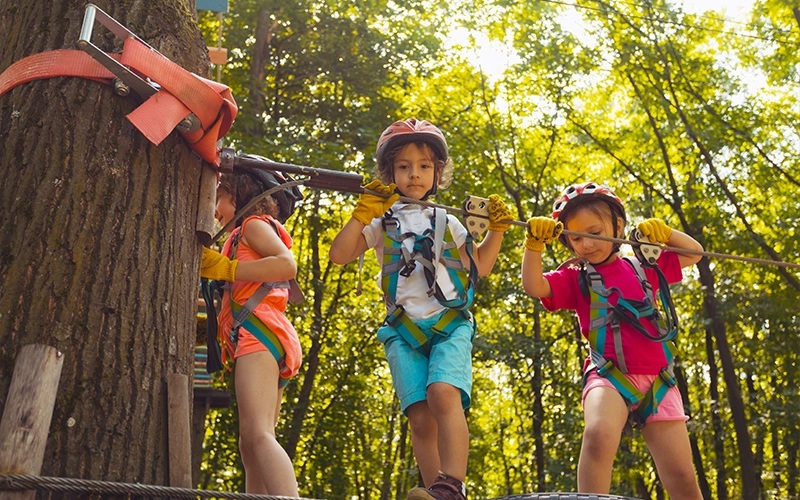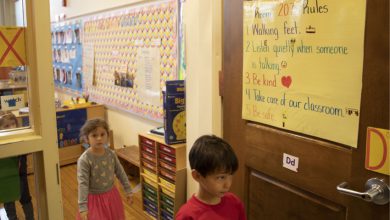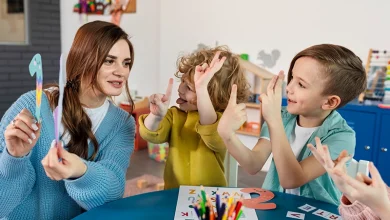Summer Activities for Kids: Fun & Learning

Summer is a time for ice cream, sunny days at the beach, and endless fun. However, it’s also a golden opportunity to keep young minds active and learning. Engaging in innovative summer activities can prevent the common ‘summer slide’ in educational development and ensure kids return to school ready and refreshed. This blog delves into a curated list of creative and educational activities that blend fun with learning, ensuring that summer isn’t just a break from school, but a continuation of discovery and growth.
Summer Activities for Kids
1. Backyard Science Experiments
Turn your backyard into a little laboratory where learning meets fun! Activities like creating a soda bottle volcano or a homemade water filter not only entertain but also teach important scientific concepts like chemical reactions and water purification. These experiments engage children’s curiosity and encourage them to question how the world works.
3. Cooking Classes
Why not use the summer to introduce children to cooking? Simple recipes like making lemonade or assembling a fruit salad can teach them about different fruits and measurements, fostering an interest in nutrition and culinary skills. It’s a delicious way of learning that yields tasty treats as rewards for their efforts.
4. DIY Arts and Crafts
Set up an outdoor art studio where children can paint, sculpt, or craft. Activities like sun-drying clay models or creating a mural from natural dyes help children express their creativity while developing fine motor skills. Plus, the summer sun makes for a perfect setting to get messy and imaginative with colors.
5. Star Gazing and Storytelling
Warm summer nights are perfect for star gazing. Introduce children to astronomy by identifying constellations and the stories behind them. This not only sparks an interest in science but also enhances their storytelling abilities, as they learn to narrate the myths associated with the stars.
6. Educational Field Trips
Plan visits to local museums, historical sites, or botanical gardens where children can learn about history, flora, and fauna. These trips can be both informative and engaging, making learning a dynamic part of their summer adventure.
7. Reading Challenges
Organize a summer reading challenge with a list of books to be read over the break. Include a variety of genres to expand their vocabulary and understanding of different narratives. Discussions or small book clubs can make this activity more interactive and enhance comprehension skills.
8. Build an Obstacle Course
Create a backyard obstacle course using household items such as ropes, ladders, and inflatable pools. As children navigate through the course, this activity promotes physical fitness, coordination, and problem-solving. It’s also a fun way for the whole family to get involved and active during the summer.
9. Plant a Garden
Gardening is a rewarding activity that teaches children about the cycles of nature and responsibility. Let them choose the plants or seeds to grow and guide them through planting, watering, and caring for their garden. This activity fosters patience and pride in seeing the results of their hard work.
Benefits of Summer Activities for Kids
Cognitive Development
Engaging in structured summer activities can help maintain and even improve cognitive skills. This is crucial during the summer months when educational engagement typically declines. Activities like reading challenges, science experiments, and math games keep the brain active and promote continuous learning, problem-solving, and critical thinking.
Physical Health
Physical activities such as swimming, cycling, and playing sports are great for children’s health. They help build strong bones and muscles, improve cardiovascular fitness, and can even enhance sleep patterns. Regular physical activity also helps prevent obesity and associated diseases, setting the stage for a healthier lifestyle.
Social Skills
Summer programs and group activities provide children with many opportunities to socialize outside of the traditional school environment. Whether it’s team sports, summer camps, or community classes, these activities help children develop teamwork, communication, and interpersonal skills. They learn to work collaboratively, resolve conflicts, and build friendships, which are essential skills throughout life.
Emotional Well-being
Participating in enjoyable summer activities can boost children’s mood and overall happiness. Activities that align with their interests can increase self-esteem and provide a sense of accomplishment. Furthermore, creative pursuits like art, music, and writing offer a constructive outlet for expressing feelings and can be particularly therapeutic.
Independence and Responsibility
Summer activities often come with increased responsibility, from managing a small project to taking care of a garden or even learning to swim. These experiences teach children about responsibility and can foster independence. As they make decisions and take on tasks on their own, they build confidence in their abilities to manage themselves and their time.
Exploration and Creativity
Summer provides a perfect backdrop for exploration. Activities that involve nature, science, or the arts encourage children to think creatively and explore the world around them. This sense of wonder and curiosity drives lifelong learning and can spark interests that turn into academic and career paths in the future.
Cultural Awareness
Visiting museums, reading diverse books, or participating in cultural festivals during summer can expose children to a variety of cultures and global perspectives. This enhances empathy, cultural understanding, and can help children appreciate the richness of diverse communities.
Incorporating these benefits into your blog can help parents see the value in keeping their kids engaged with summer activities, showing that these experiences contribute significantly to both their immediate enjoyment and long-term development.
Conclusion
Summer is the perfect canvas for painting days filled with learning and fun. By incorporating educational activities into the seasonal break, parents can ensure that their children’s minds remain active and engaged. Each of these activities not only promises fun but also nurtures skills and knowledge, making summer a productive season of growth and discovery.





